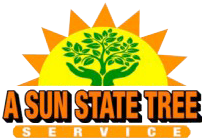How to Handle a Fallen Tree After a Storm
Before approaching a fallen tree, it's crucial to ensure the area is safe. Start by checking for hazards like downed power lines, gas leaks, or unstable structures. If power lines are involved, contact your utility company immediately and keep a safe distance. Inspect the area for damage to your home, vehicles, and other structures, documenting everything for insurance purposes. Safety should always be a priority, so wear protective gear such as gloves, sturdy boots, and a hard hat if necessary. Keep children and pets away from the area until it is declared safe.
Professional Tree Removal
When it comes to large or precariously positioned trees, professional tree removal is the best option. Certified arborists have the expertise, equipment, and experience to safely and efficiently remove fallen trees. They can also assess the health of surrounding trees to prevent future incidents. Many tree service companies offer emergency tree removal services, providing prompt assistance when you need it most. When hiring a company, ensure they are reputable and have proper insurance and certifications. Obtain multiple quotes to ensure a fair price, and check if your homeowner's insurance covers tree removal expenses.
DIY Tree Removal Tips
For smaller fallen trees, you might consider a DIY approach to tree removal, but only if it is safe to do so. First, evaluate the tree's size and position to ensure it is not tangled in power lines or causing structural damage. Only attempt to remove trees that are stable and not under tension. Gather the right tools, such as a chainsaw, axe, and pruning saw, ensuring they are in good working condition. Use safe cutting techniques by planning your cuts carefully. Start by removing smaller branches to reduce weight and bulk. Clear the area of people and obstacles before starting, and have a clear escape route in case the tree shifts unexpectedly.
Post-Removal Cleanup
After the fallen tree has been removed, addressing the aftermath is essential. Start with debris removal, collecting and disposing of branches, leaves, and other debris. Many municipalities offer storm debris removal services or designated drop-off sites. Consider renting a wood chipper to turn branches into mulch. Decide whether to remove the tree stump; options include grinding, chemical treatments, or manual excavation. Leaving the stump can lead to decay and pest infestations. Finally, think about tree replacement. Choose a species suitable for your climate and soil conditions, and provide young trees with proper care, including watering, mulching, and protection from future storms.
Handling a fallen tree after a storm involves careful assessment, professional help, or safe DIY removal. For expert tree removal services, contact A Sun State Tree Service at
407-530-3790, and get a free estimate!

